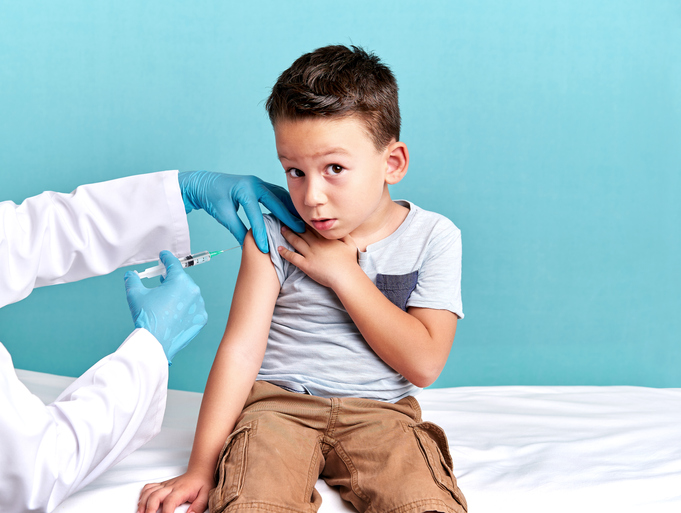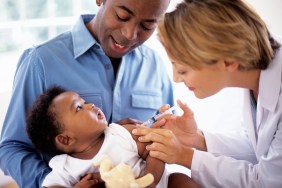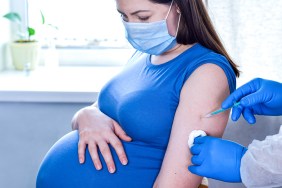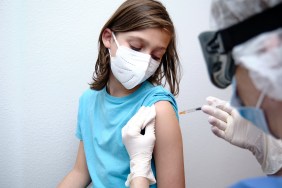Vaccines have become an incredibly thorny issue in the parenting community. For years, vaccines have been blamed for causing autism although that has been soundly debunked by a mountain of research. Parents across the country are beginning to choose not to vaccinate their kids and as they do this, hospitals are seeing spikes in terrifying childhood diseases that had previously been eradicated such as measles.
When babies are born, they typically are protected from diseases for a short period of time because they are born with antibodies from their mothers. This is nature’s way of making sure that babies survive. But that protection only lasts for so long, which is why pediatricians urge parents to vaccinate their children.
A vaccine is a trace amount of weakened germ from the same disease that it aims to prevent. The idea is that when a tiny bit of the disease enters the human body, the immune system will spring into action and create an army of antibodies. Later, if that child is exposed to the same germ in a bigger and more robust form, their immune system will be ready to fight it off with that reserve of antibodies it created when exposed by the vaccine.
Science can do brilliant things by working with the human body and as a result, we don’t see polio or smallpox anymore.
But a rising number of parents are choosing to opt out, which should alarm everyone. When parents don’t vaccinate their children, they are giving life-threatening diseases the opportunity to take root in our communities. In 2018, there were 292 cases of measles across 26 states and the District of Columbia, which was more than double the year previous.
When a community is vaccinated against a disease it doesn’t just protect those who had the injection, it also protects the most vulnerable people who for serious medical reasons cannot be vaccinated. Doctors call this herd immunization. The fact is that diseases like measles, polio, and whooping cough are still out there and are regularly brought to the United States through travel, which makes vaccines all the more important.
Taking a Shot at Anti-Vaccination Beliefs
Still, some parents will argue that vaccines cause untold harm to kids and as a preventative action they refuse these lifesaving shots. The Centers for Disease Control and Prevention are clear about the possible risks of vaccines, which can include everything from a sore arm (the site of the injection) to death. What some people don’t understand, though, is that the risks of becoming ill, developing an allergic reaction, or even death are so minuscule that the benefits of the vaccines far outweigh the risk. https://www.cdc.gov/vaccines/vac-gen/side-effects.htm
Furthermore, parents of children who may have allergies to preservatives used in vaccines can request – and easily have access to – vaccines without preservatives. A family doctor will know how to assess this properly and can guide a family through a safe experience with vaccines.
In a rapidly changing world in which access to affordable and adequate healthcare is constantly threatened by politics, taking preventative measures to ensure kids get a future that is healthy and bright is the wisest and kindest action any parent can make.
Should Unvaccinated Kids Have The Right to Go to School?
Some states are beginning to take steps to slow or stop the movement of parents opting out of vaccinations citing personal philosophy or religious reasons. In Maine, legislators have introduced a bill to require vaccines of all kids with the only exemption being for documented medical reasons. The bill has kicked off a heated battle and as a result, may not ever be passed.
The fact that lawmakers are worried about protecting herd immunity against the risk of epidemics is a signal that the spiking of outbreaks like measles and whooping cough have been significant enough to reasonably question the practice of opting out.
We all like to say that it takes a village to raise great kids into great people. Sometimes that means making choices that aren’t just healthy for ourselves but for the good of our friends and neighbors too. So, when the question of why parents wouldn’t choose sound medical science over the very real risk of deadly illnesses, we all need to listen to the reasons given and do our best educate and support families so that they can feel comfortable vaccinating.
The bottom line is, vaccines save lives.








